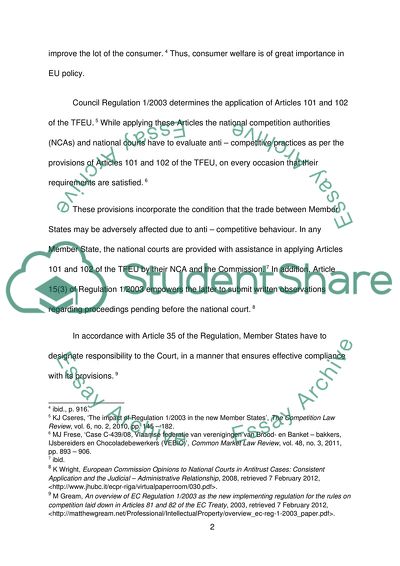Cite this document
(Competition Law and Consumer Welfare Coursework, n.d.)
Competition Law and Consumer Welfare Coursework. https://studentshare.org/law/1765854-european-law
Competition Law and Consumer Welfare Coursework. https://studentshare.org/law/1765854-european-law
(Competition Law and Consumer Welfare Coursework)
Competition Law and Consumer Welfare Coursework. https://studentshare.org/law/1765854-european-law.
Competition Law and Consumer Welfare Coursework. https://studentshare.org/law/1765854-european-law.
“Competition Law and Consumer Welfare Coursework”. https://studentshare.org/law/1765854-european-law.


